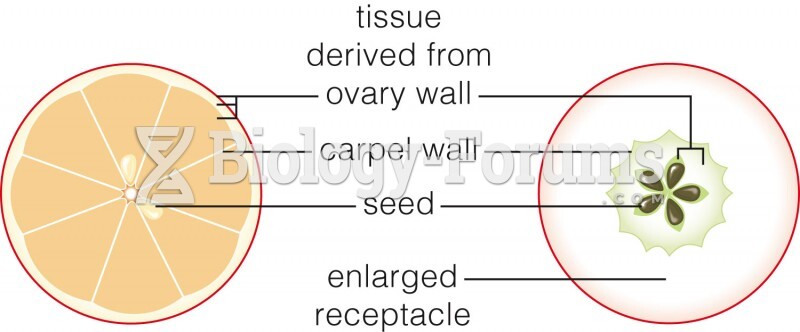|
|
|
Lower drug doses for elderly patients should be used first, with titrations of the dose as tolerated to prevent unwanted drug-related pharmacodynamic effects.
About 80% of major fungal systemic infections are due to Candida albicans. Another form, Candida peritonitis, occurs most often in postoperative patients. A rare disease, Candida meningitis, may follow leukemia, kidney transplant, other immunosuppressed factors, or when suffering from Candida septicemia.
On average, the stomach produces 2 L of hydrochloric acid per day.
Fungal nail infections account for up to 30% of all skin infections. They affect 5% of the general population—mostly people over the age of 70.
Essential fatty acids have been shown to be effective against ulcers, asthma, dental cavities, and skin disorders such as acne.
 Development of an atherosclerotic plaque that progressively narrows the lumen of an artery to the po
Development of an atherosclerotic plaque that progressively narrows the lumen of an artery to the po
 A statue of a corn goddess of the Moche peoples of coastal Peru, around 400 BP. Within several centu
A statue of a corn goddess of the Moche peoples of coastal Peru, around 400 BP. Within several centu





